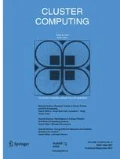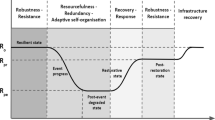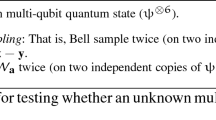Abstract
The contemporary advancement in smart technology has led to a greater business prospective. Smart system like cyber-physical system (CPS) has become prevalent in many area of applications. Challenges in integration of CPS with group of network has physical components to sense the state of changes in the real world is paving way towards the introduction of enhanced security mechanism. In this paper, we propose a security framework for group of network is a pseudo-free to communicate with the cyber physical system to assure high security. Pseudo-freeness is a very strong assumption of security used in cryptography. Group is said to be pseudo-free group, if an adversary who is allowed to see group description, is unable to solve non-trivial equations. Non-trivial equations are the equations that have no solution in a free group. The notion of pseudo-freeness was introduced with few open problems whether such groups exists in cryptosystem or not. The conjecture that the RSA group is pseudo-free has been settled for case of static adversary who is given only the group description and its goal is to come up with an equation and solution. Later on the notion of pseudo-freeness has been extended to adaptive adversary for case of univariate equations. In case of adaptive pseudo-free groups, the adversary learns solutions of some non-trivial equations before producing a new equation. Here we make extension to the notion of pseudo-free groups from univariate to multivariate equations and system of equations in face of adaptive adversary. We define and prove the security of adaptive pseudo-free groups for case of multivariate equations and system of equations. According to the results, this framework can be used as a system design for a group to have strong security with cyber physical system.
Similar content being viewed by others
References
Babai, L.: Randomization in group algorithms: conceptual questions. L. Finkelstein and W.M. Kantor, editors, Groups and Computation2. Proc1995 DIMACS Workshop, volume28 of DIAMS Ser.in Discr. Math and Theor. Comp.Sci., pages 1-16. AMS (1997) https://doi.org/10.1090/dimacs/028/01
Bellare, M., Rogway, P.: Random oracles are practical: a paradigm for designing efficient protocols. In: First ACM Conference on Computer and Communications Security, pp. 62–73, Fairfax, Virginia, USA, November 3–5, (1993). ACM Press, https://doi.org/10.1145/168588.168596
Catalano, D., Fiore, D., Warinschi, B.: Adaptive pseudo-free groups and applications. In: Annual International Conference on the Theory and Applications of Cryptographic Techniques, pp. 207–223. Springer, Berlin, Heidelberg (2011)
Cramer, R., Shoup, V.: Signature schemes based on the strong RSA assumption. ACM Trans. Inf. Syst. Sec. 3(3), 161–185 (2000). Preliminary version in CCS’99, https://doi.org/10.1145/357830.357847
Diffie, W., Hellman, M.E.: New directions in cryptography. IEEE Trans. Inf. Theory IT 22:644–654 (1976). https://doi.org/10.1109/TIT.1976.1055638
Gutierrez, C.: Satisfiability of equations in free groups is in PSPACE. In: Proceedings of 32nd ACM STOC, pp. 21–27. ACM Press (2000). https://doi.org/10.1145/335305.335308
Rivest, L., Hohenberger, S.R.: The Cryptographic impact of groups with infeasible inversion. Susan, New York (2003)
Hirano, T., Tanaka, K.: Variations on pseudo-free groups. In: Research Reports, Series C: Computer Science, C-239, Tokyo Institute of Technology (2007)
Kharlampovich, O., Myasnikov, A.: Implicit function theorem over free groups. J. Algebra 290(1), 1–203 (2005). https://doi.org/10.1016/j.jalgebra.2005.04.001
Lipschutz, S., Miller, C.F.: Groups with certain Solvable and unsolvable decision problems. Commun. Pure Appl. Math. (1971). https://doi.org/10.1002/cpa.3160240103
Lyndon, R.C.: Equations in free groups. Trans. Am. math. Soc. 96, 445–457 (1960). https://doi.org/10.2307/1993533
Makanin, G.S.: Equations in a free group. Math. USSR—Izvestiya, 21(3), (for 1983, pub. 1984), pp. 483–546. (1983). https://doi.org/10.2307/2273923
Micciancio, D.: The RSA group is pseudo-free. In: Cramer, R (ed), EUROCRYPT 2005, LNCS, vol. 3494, pp. 387–403, Aarhus, Denmark, May 22–26 (2005). Springer, Berlin, Germany, https://doi.org/10.1007/s00145-009-9042-5
Micciancio, D., Warinschi, B.: Soundness of formal encryption in presence of adaptive adversaries. In: Theory of Cryptographic Conference- Proceedings of TCC’04, LNCS, vol. 2951, pp. 133–151 (2004). https://doi.org/10.1007/978-3-540-24638-1_8
Razborov, A.A.: On system of equations in a free groups. IZvestiya NA SSSR, 48, 779–832 (In Russian), 1984. English translation in Math. USSR IZvestiya 25(1) 115–162 (1985). https://doi.org/10.1070/IM1985v025n01ABEH001272
Rivest, R.L.: On the notion of pseudo-free groups. In: Theory of Cryptographic Conference- Proceedings of TCC’04, LNCS, vol. 2951, pp. 505–521 (2004). https://doi.org/10.1007/978-3-540-24638-1_28
Shingo, H., Shuji, I., Hiroki, S., Katsuhiro, T..: On the Pseudo-Freeness and CDH Assumption. Springer, Berlin (2009). https://doi.org/10.1007/s10207-009-0087-0
Yang, J., He, S., Lin, Y., Lv, Z.: Multimedia cloud transmission and storage system based on internet of things. Multimedia Tools Appl 76, 17735–17750 (2017). https://doi.org/10.1007/s11042-015-2967-9
Author information
Authors and Affiliations
Corresponding author
Rights and permissions
About this article
Cite this article
Kumar, M.V.R., Bhalaji, N. & Singh, S. An augmented approach for pseudo-free groups in smart cyber-physical system. Cluster Comput 22 (Suppl 1), 673–692 (2019). https://doi.org/10.1007/s10586-018-2353-2
Received:
Revised:
Accepted:
Published:
Issue Date:
DOI: https://doi.org/10.1007/s10586-018-2353-2




